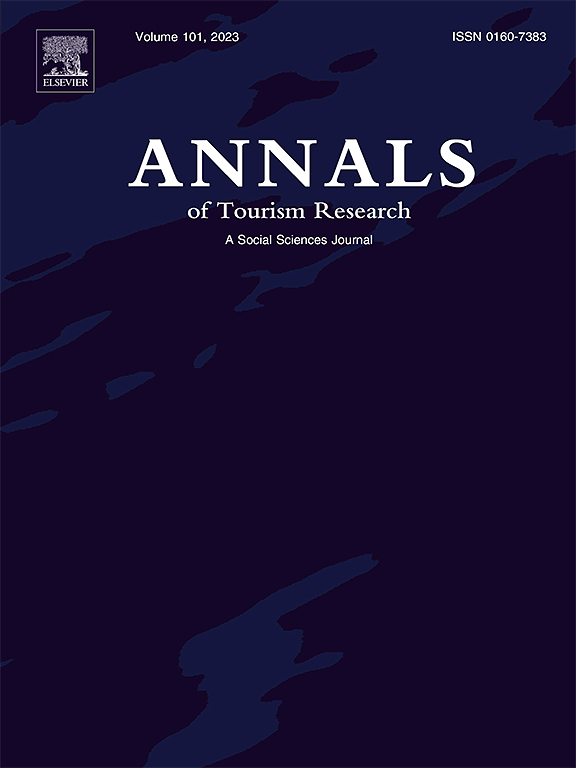虚拟影响者与文化遗产目的地:虚拟影响者与人类影响者的认可效果对比
IF 10.4
1区 管理学
Q1 HOSPITALITY, LEISURE, SPORT & TOURISM
引用次数: 0
摘要
本研究进行了四次实验,发现虚拟影响者在为文化遗产目的地背书方面不如人类影响者有效。根据社会分类理论,我们认为之所以会出现这种效果,是因为游客认为虚拟影响者(与人类影响者相比)是人类的局外人,对人类文化的理解有限。与这一机制相一致,我们的研究结果进一步揭示,当虚拟影响者展示出理解人类文化的能力时,这种低有效性就会得到缓解。本研究为旅游业中虚拟影响者的社会认知和社交媒体营销方面的文献做出了理论贡献。此外,这些发现还为在目的地营销中有效利用虚拟影响者提供了管理启示。本文章由计算机程序翻译,如有差异,请以英文原文为准。
Virtual influencer and cultural heritage destination: Endorsement effectiveness of virtual versus human influencers
The present research conducted four experiments and found that virtual influencers are less effective than human influencers in endorsing cultural heritage destinations. Drawing on social categorization theory, we suggest that this effect occurs because tourists perceive virtual (vs. human) influencers as outsiders of humankind with a limited understanding of human culture. Consistent with this mechanism, our findings further reveal that this low effectiveness would be mitigated when virtual influencers showcase the ability to comprehend human culture. This research makes theoretical contributions to the literature on social perceptions of virtual influencers and social media marketing in the tourism industry. Also, these findings provide managerial implications regarding the effective usage of virtual influencers in destination marketing.
求助全文
通过发布文献求助,成功后即可免费获取论文全文。
去求助
来源期刊

Annals of Tourism Research
Multiple-
CiteScore
19.10
自引率
9.10%
发文量
135
审稿时长
42 days
期刊介绍:
The Annals of Tourism Research is a scholarly journal that focuses on academic perspectives related to tourism. The journal defines tourism as a global economic activity that involves travel behavior, management and marketing activities of service industries catering to consumer demand, the effects of tourism on communities, and policy and governance at local, national, and international levels. While the journal aims to strike a balance between theory and application, its primary focus is on developing theoretical constructs that bridge the gap between business and the social and behavioral sciences. The disciplinary areas covered in the journal include, but are not limited to, service industries management, marketing science, consumer marketing, decision-making and behavior, business ethics, economics and forecasting, environment, geography and development, education and knowledge development, political science and administration, consumer-focused psychology, and anthropology and sociology.
 求助内容:
求助内容: 应助结果提醒方式:
应助结果提醒方式:


